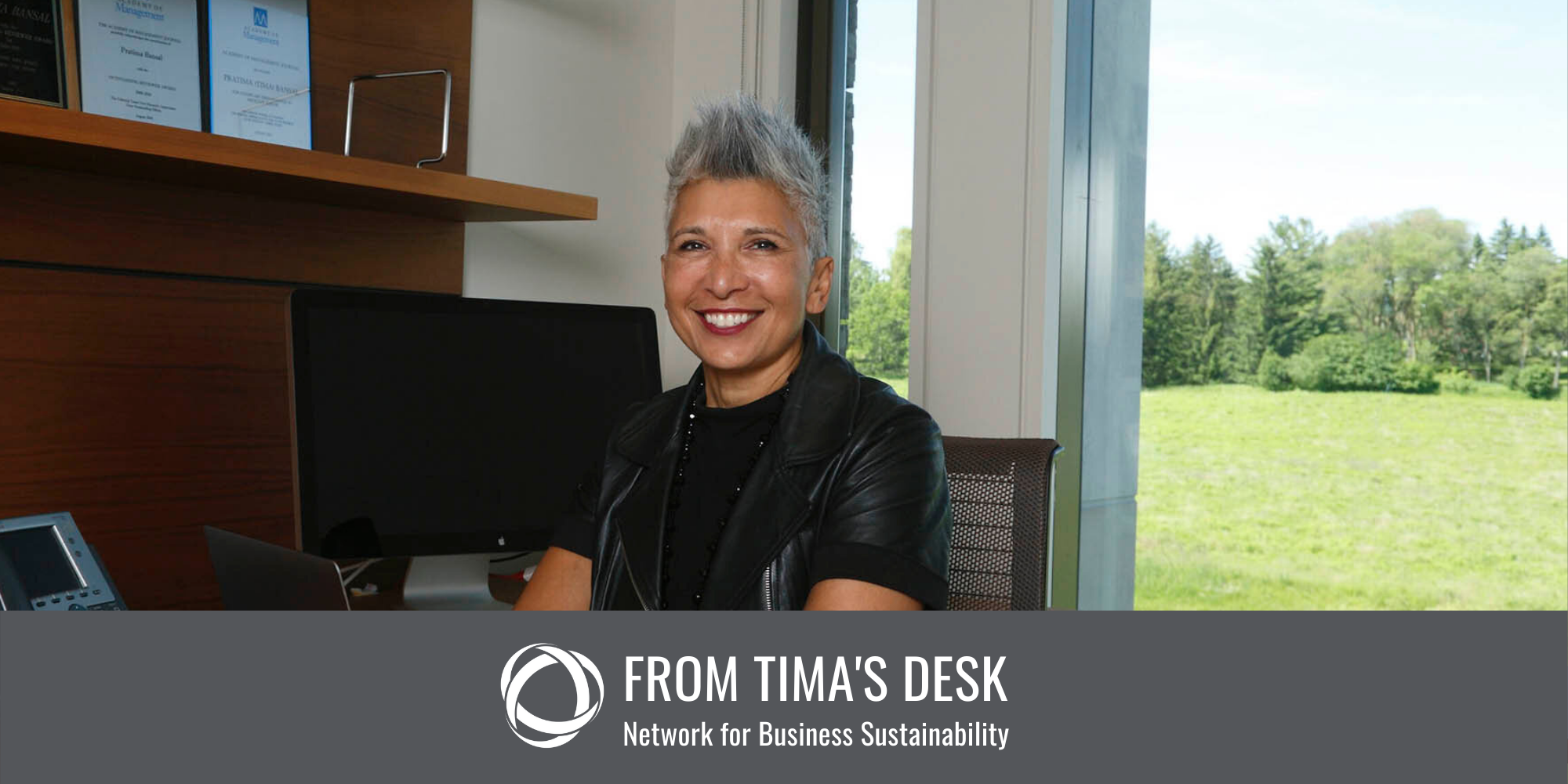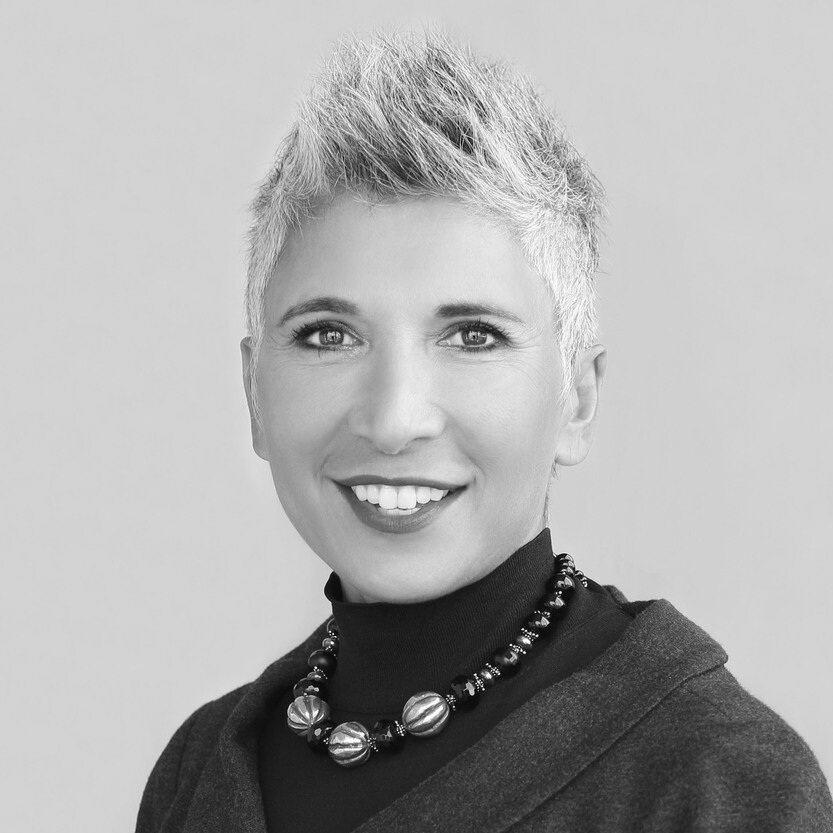Feel exhausted in a world of increasing demands? Systems thinking tells us that if we do fewer things well, we will ultimately achieve more, faster.
Dr. Tima Bansal is Founder of the Network for Business Sustainability.
Lately, I’ve been feeling fatigued. It’s not a temporary thing. It’s been piling up for years. Each day opens with a barrage of deadlines, email messages, and meetings. I’m running a marathon distance at the pace of a sprint.
I expect many of you relate. This challenge isn’t uniquely mine and it is worse now than it has ever been in the past.
For me, the biggest issue is that I love my work and believe it is important. As the ‘earth burns,’ I want even more to help shape a new conversation in business. So, I take on more projects, meet more people, give more talks — all with the hope of having even more impact.
But, academic research has very long cycles, and each project means years of hard work. New projects start piling on unfinished projects, which start to edge increasingly into my personal life.
Technology has not made it easier. Although it has increased my reach, it also has generated more professional acquaintances, more virtual meetings, more email messages, and more requests for help. And, this doesn’t include the larger number of podcasts I want to hear and books I want to read. I’m exhausted just thinking about this.
I’ve been obsessing about ‘doing too much’ and ‘going too fast’ for some time, not only because I feel my quality of life diminishing, but because I feel it can inform the issues that I study — the challenges of business sustainability.
Some recent experiences have helped me understand how I can address this feeling of overload.
The View from a Buddhist Temple: Experience the Moment

In November 2019, I stayed at two different Buddhist temples in Korea. Even though I am not Buddhist, I’ve always been intrigued by Buddhism. I felt some of the ideas of Buddhism held a key into understanding sustainability, especially their approach to time.
Buddhism asks us to be mindful by pushing aside all that is secondary and focusing on the task at hand. It asks us to slow down and deepen our understanding of the moment. We gain more insight not only about ourselves, but about the broader context in which we are embedded.
Being mindful was easy to do in a quiet Buddhist temple, tucked away in the Korean hills and far away from the daily grind of work. However, being mindful is a different matter in the day-to-day barrage of daily activities.
What I couldn’t figure out how I was to go slower, when the world was demanding that I go faster. Then I saw the connection to Peter Senge’s idea of entering a dark room.
The View inside a Dark Room: Go Slow When You Can’t See What’s in Front

In the month before my trip to Korea, Peter Senge spoke to Ivey’s Innovation Learning Lab, which I set up to help organizations use systems thinking to innovate in a disrupting world. Senge used the analogy of a dark room to illustrate how one moves through a turbulent world where the future is so uncertain. He said that when you enter a dark room, you walk slowly, feeling around in the dark to ensure you don’t fall or break something.
In a time of high turbulence, it is even more important not to run. The dark room is full of even more obstacles. Each step forward needs to be thoughtful and we need to improve our sensing capabilities.
According to Senge, the mantra to ‘fail fast, fail early, fail cheap’ is “pure idiocy.” Organizations are engaging in more experiments, more prototypes, and even more failures. But this slows them down. By doing a few of the right things well, he says, they will ultimately move faster by not having to fix all that they have broken.
Why Can’t We Do More by Going Faster?
It was after a few months of reflecting on my experiences at the Buddhist temple and Peter Senge’s talk that I really understood why it is important to go slow especially when the world is going faster. The answer lies in how systems work.
The first relevant systems principle is the idea of limits. Many of us have heard about ‘limits to growth’ in natural systems. The same principle applies to our time and attention. As we reach limits in those areas, we find ourselves less able to cope with all our tasks. We experience bottlenecks in our work and reduced energy. If a project goes off the rails, it throws off all our other work, pressing into scarce personal time and making us even less able to recover. Running on empty, without time to regenerate, makes us less productive.
A second systems principle is the idea of acupuncture or leverage points. In a turbulent system, we are less able to control outcomes, we can only influence them. We have to find the places that will nudge the system forward in the way we want. These places may be, for example, rules, ideas, or physical systems. We need mindfulness to understand ourselves and our place in the larger system.
In a dark room, we know where we know where we want to go and where to step next, but the rest of the journey is obscured. So, we must slow down and ensure we are moving to the right destination, step by step. We need to be mindful and reflect on whether we are doing the ‘right’ things and the value they bring to us.
The Lessons for Business Sustainability
There is little doubt that the business environment is becoming more turbulent. Decades ago, organizations knew their competition. Now, competitors can come from anywhere. What’s more, the technology that your organization or value chain uses could alter the very fundamentals of the way in which you operate. The entertainment industry is populated by traditional entertainment companies (Disney), platform companies (Amazon), and computer companies (Apple). There are also the numerous smaller players that emerge quickly from nowhere.
It is no wonder that there is no shortage of ‘how to move faster’ guides. McKinsey has been swamping my digital media with announcements of their upcoming publication called Fast Times. Such guides argue that organizations need to move faster to keep up with a faster world.
I am arguing that going ever faster is not the solution. Trying to outdo competitors — to produce and sell more — not only depletes the organization’s resources, it depletes the world’s resources.
Doing more of the wrong things, doesn’t ensure that we do more of the right things. In fact, identifying the right thing to do is even more difficult when there are more options. In a faster world, we need to slow down to identify those ‘right things’.
I’m Slowing Down
After spending time in Korean temples and listening to Peter Senge, I will try to be mindful of two questions when I reflect on how I spend my time.
-
Does this opportunity advance my overall ambition? Instead of just saying yes to the next opportunity that presents itself, I need to be mindful about where I want to go. If I’m already busy and it’s important, I need to let something go. And, it’s okay to create slack time to regenerate. I need to appreciate those quiet moments, as there will be opportunities that present themselves.
-
Is what I am currently doing still making sense? As the environment changes so rapidly, it is easy to hold onto things that take attention and are not taking me to where I want to go. I have spent far too many wasteful hours being distracted by digital content. I need to maintain moments of reflection to ensure that how I spend my days advance my ambition.
I need to focus less on how much I do, but more on what little I should do and do well. It will force me to make wiser choices and get me closer to helping both myself and organizations become more sustainable.
Continuing the Conversation
As always, I welcome your reactions. Please feel free to message me (@TimaBansal, tbansal@ivey.ca) or the NBS community (@NBSnet) privately or publicly.
Additional Resources
Here’s an excerpt from our conversation with Peter Senge at the Ivey Innovation Learning lab
Here’s some of my more readable academic work on this topic:
-
Bansal, P. 2019. Sustainable development in an age of disruption. Academy of Management Discoveries, 5(1).
-
Bansal, P., & DesJardine, M. 2014. Business sustainability: It’s about time. Strategic Organization, 12(1),70-78.
-
Morales-Raya, M., & Bansal, P. 2015. Racing to the bottom: The negative consequences of organizational speed. Organizational Dynamics, 44(3), 226-235
Acknowledgements
I want to thank Angela Greco, Sylvia Grewatsch and Karen MacMillan for pointing me to resources that helped me deepen my ideas. And, Maya Fischhoff remains the intrepid editor that keeps me on track, on time, and helps me focus on the right things!
More From Tima’s Desk
Dr. Tima Bansal, NBS’s Founder, regularly shares her observations about business sustainability. Click the button below to see the full series.




Add a Comment
This site uses User Verification plugin to reduce spam. See how your comment data is processed.This site uses User Verification plugin to reduce spam. See how your comment data is processed.